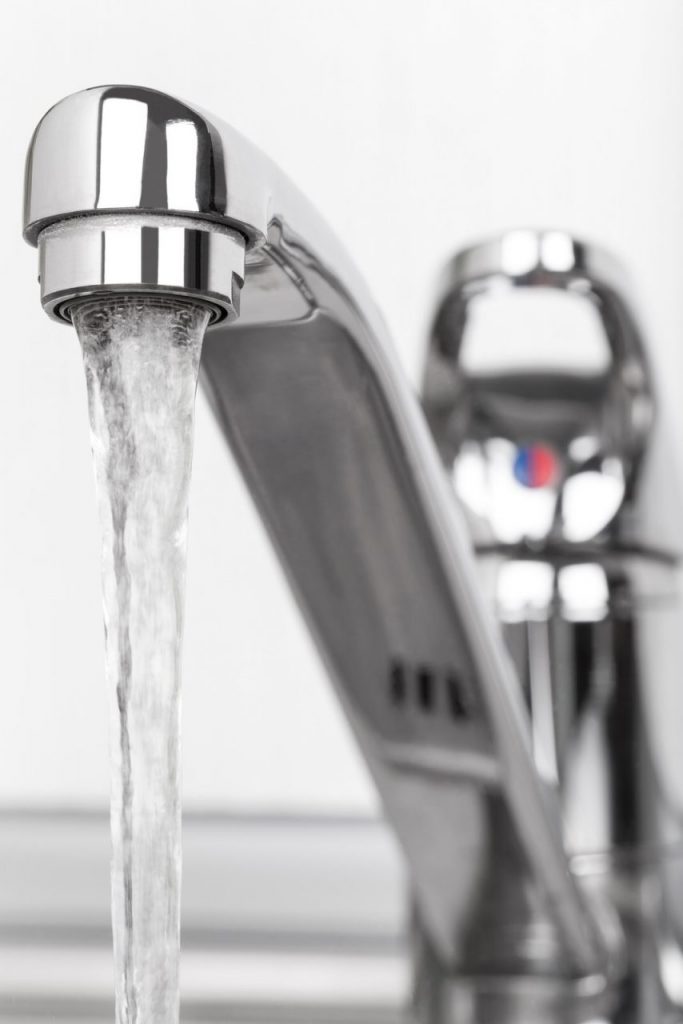Clean Water
Prein&Newhof Water Testing
Know the Facts
Prein & Newhof provides water testing so that you can know if your water is clean. We’ve prepared some FAQs below about PFAS and lead as a first step and included a list of resources that we rely on.
We can test your drinking water for lead and for PFAS at our Prein&Newhof Laboratory.
We can help you understand the results and, if necessary, take the next step:
- We are overseeing the replacement of hundreds of lead service lines to homes in Michigan.
- We are working with Plainfield Township to remove PFAS from its municipal drinking water system via a Granular Activated Carbon (GAC) pilot program at its drinking water treatment plant. The Michigan Department of Environmental Quality awarded funds to assist Plainfield Township accomplishing this goal.
PFAS in Drinking Water
PFAS are a large group of man-made chemicals that are resistant to heat, water, and oil. For decades, they have been used in many industrial applications and consumer products such as carpeting, waterproof clothing, upholstery, food paper wrappings, fire-fighting foams, and metal plating.
In 2012, six PFAS compounds were classified by the U.S. Environmental Protection Agency (EPA) as “emerging contaminants”. An emerging contaminant is not currently subject to any drinking water regulation, but is known or anticipated to occur in public water systems and thus may require regulation.
Between 2013 and 2015 large water systems were required to monitor for these six PFAS under the Third Unregulated Contaminant Monitoring Rule (UCMR 3).
In 2016, the EPA set a lifetime health advisory (LHA) level for perfluorooctanoic acid (PFOA) and perfluorooctane sulfonate (PFOS) at 70 parts per trillion (ppt), individually or combined. EPA’s health advisories are non-enforceable and non-regulatory and provide technical information to states agencies and other public health officials on health effects, analytical methodologies, and treatment technologies associated with drinking water contamination.
In August 2020, Michigan implemented strict state regulations to limit PFAS contamination in municipal drinking water. After a year-long review by the Michigan PFAS Action Response Team (MPART), it was determined that Michigan must set new drinking water standards for public water systems to achieve. The ruleset includes seven PFAS compounds:
- PFNA at 6 ppt,
- PFOA at 8 ppt,
- PFOS at 16 ppt,
- PFHxS at 51 ppt, GenX at 370 ppt,
- PFBS at 420 ppt, and
- PFHxA at 400,000 ppt.
Michigan’s requirements now exceeds the EPA’s current guidelines.
Large municipal water systems were required to monitor for six PFAS between 2013 and 2015 under the EPA’s UCMR 3. Since then, some water systems have proactively tested for PFOA and PFOS.
In 2018, the Michigan Department of Environmental Quality (MDEQ), now known as EGLE, began a statewide program to test all community water systems and all schools that use well water for PFAS. The EGLE sampling schedule and initial test results can be reviewed on the Michigan PFAS Action Response Team (MPART) website.
P&N has the capability to sample and test for PFAS. You can contact our Lab (link to Contacts page/lab) to get your home or water system tested.
If your well does contain PFAS above the EPA health advisory level, you should contact your local county health department.
The U.S. Environmental Protection Agency has only classified PFAS as an emerging contaminant since 2013. We use the current state and federal regulations, as well as current engineering best practices, as we develop our plans.
We are working with Plainfield Township to remove PFAS from its drinking water via a Granular Activated Carbon (GAC) pilot program at its drinking water treatment plant. The Michigan Department of Environmental Quality awarded funds to assist Plainfield Township in determining the effectiveness of this treatment method.
Since 1969, P&N has worked with municipal and private clients to address water quality, distribution, and discharge challenges, always with the public’s health as the top priority.
Lead in Drinking Water
If you are a homeowner, you may have a lead service line or a gooseneck/pigtail connected to galvanized pipe line which will need to be completely replaced. Goosenecks or pigtails (short sections of lead pipe) connected to a galvanized line make the entire service line be considered a lead service line.
Additionally, any service lines that were previously connected to a gooseneck now need to have the rest of the line replaced.
No, your drinking water supplier is responsible for the entire water service line if it is a lead pipe – this encompasses from the watermain up to the 1st valve or 18” inside the building, whichever is closer to the watermain. If there is lead present in any area of the service line, it must be replaced. In addition, previous partial water service replacements must be revisited and partial lead service line replacements are no longer allowed.
It’s easy! You can order a lead testing kit from our Environmental Laboratory. We are one of the few labs in West Michigan specializing in the analysis of drinking water samples.
Prein&Newhof is Drinking Water Certified by the EGLE for metals like lead, and many others. You can pick up a test kit or we can ship it to you. Call 616-364-7600 for details.

Resources
Michigan Department of Environmental Quality – PFAS Action Response Team (MPART)
Kent County – Home Page
North Kent County – PFAS Investigation Page
Interstate Technology and Regulatory Council (ITRC)
New Hampshire Department of Environmental Quality
U.S. Environmental Protection Agency – PFOA & PFOS Drinking Water Health Advisories Fact Sheet
U.S. Environmental Protection Agency – PFOA & PFOS Drinking Water Health Advisories Webpage
U.S. Environmental Protection Agency PFAS portal
